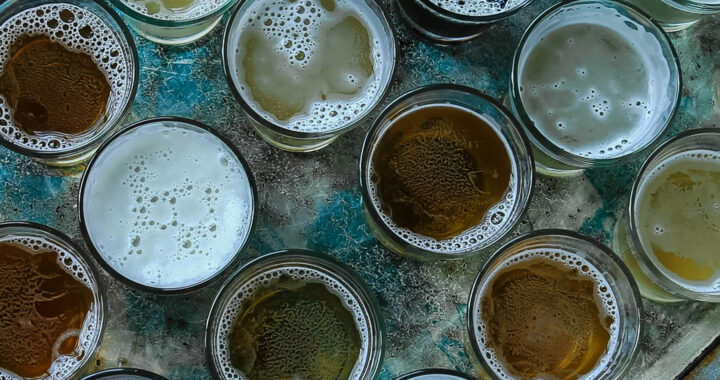Fermented or alcoholic beverages have been more than mere indulgences throughout history and across ancient and modern civilizations. Anthropologists have long speculated that alcohol played a role in the growth of organized governance. The “drunk hypothesis” proposes that intoxication fosters cooperation, social bonding, and political cohesion. A recent study offers one of the first quantitative tests of this intriguing idea.
From Feasts to States: Anthropologists Investigated the Subtle Role of Alcohol in Human Civilization
Background
Canadian-American sinologist and philosopher introduced the drunk hypothesis in his 2021 book to explain that alcohol consumption and the resulting intoxication could lower inhibitions, boost creative thinking, strengthen social bonds, and thus support the cultural and political development of human societies. The effects of intoxication could have supported cooperation, collective problem-solving, and structures essential for societal growth.
In ancient civilizations such as Mesopotamia, China, and the Inca Empire, alcoholic beverages served important sociopolitical functions. It played a central role in rituals, reinforced social bonds during communal feasts or celebrations, facilitated alliance formation, and supported redistributive practices. These contexts allowed community leaders to display generosity, consolidate authority, and strengthen the cohesion of increasingly complex societies.
Researchers from the Max Planck Institute for Evolutionary Anthropology in Leipzig examined data from the Standard Cross-Cultural Sample to determine the merits of the hypothesis. Note that the dataset covered nearly 200 non-industrial societies. They constructed another dedicated dataset on the presence of indigenous fermented drinks—while excluding distilled varieties. Political complexity was measured through the number of jurisdictional levels.
Findings
Bayesian regression models and causal inference frameworks were used. The analysis further accounted for confounding influences such as agriculture, environmental productivity, geography, and shared ancestry. The problem of cultural non-independence was addressed by incorporating both spatial and phylogenetic correlation to ensure that the observed associations were not simply products of geographic proximity or common heritage. Below are the findings:
• Positive Association: Societies with indigenous low-alcohol fermented beverages tended to have more complex political structures. This pattern persisted across different statistical models, suggesting that alcohol may have played a supportive role in fostering cooperation, hierarchy, and governance systems.
• Modest Effect Size: Remember that the relationship between alcohol consumption and political complexity is positive. However, the magnitude is relatively small compared to other factors. This suggests that alcoholic beverages were a contributing factor and not a dominant driver of societal complexity.
• Influence of Agriculture: Agricultural intensity had a much larger and more consistent impact on political complexity than alcohol did. The presence of farming systems was strongly linked to more sophisticated governance. This implies that agriculture was a key engine of complexity in early societies.
• Robust Results: The positive association between alcohol and complexity held in both the wide dataset consisting of 160 societies and the more conservative dataset involving 139 societies. Controlling for ancestry, geography, environmental productivity, and agriculture did not erase the link, though it reduced its size.
• Importance of Context: Fermented beverages were widespread in Eurasia, Africa, and parts of South America, but rarer in pre-contact North America and Oceania. Availability of fermentable raw materials, trade routes, and environmental productivity influenced where alcohol consumption emerged.
Implications
The researchers proposed several plausible mechanisms behind the influence of alcohol. Drinking in communities may have strengthened group bonds, created reciprocal obligations, and enabled large-scale feasts. These gatherings provided opportunities for leaders to mobilize labor, reward allegiance, and reinforce political hierarchy. Such practices could have made governing larger and more complex societies both feasible and sustainable.
However, considering its methodology, the study was not able to establish causality. It remains possible that more complex societies were simply more likely to develop alcohol production. The research positions fermented beverages as potential facilitators of complexity rather than sole origins of political hierarchy. The more critical factors that shaped sociopolitical complexities in early societies were agriculture, religion, and warfare.
The observed benefits apply to pre-industrial, low-alcohol, communal drinking contexts. Some modern patterns of alcohol consumption differ and often result in social harms rather than cohesion. The authors caution against interpreting these historical findings as justification for present-day excess. They underscored the fact that the historical society-building role of alcohol was embedded in specific cultural and environmental conditions.
FURTHER READING AND REFERENCE
- Hrnčíř, V., Chira, A. M., and Gray, R. D. 2025. “Did Alcohol Facilitate the Evolution of Complex Societies?” Humanities and Social Sciences Communications. 12(1). DOI: 1057/s41599-025-05503-6





